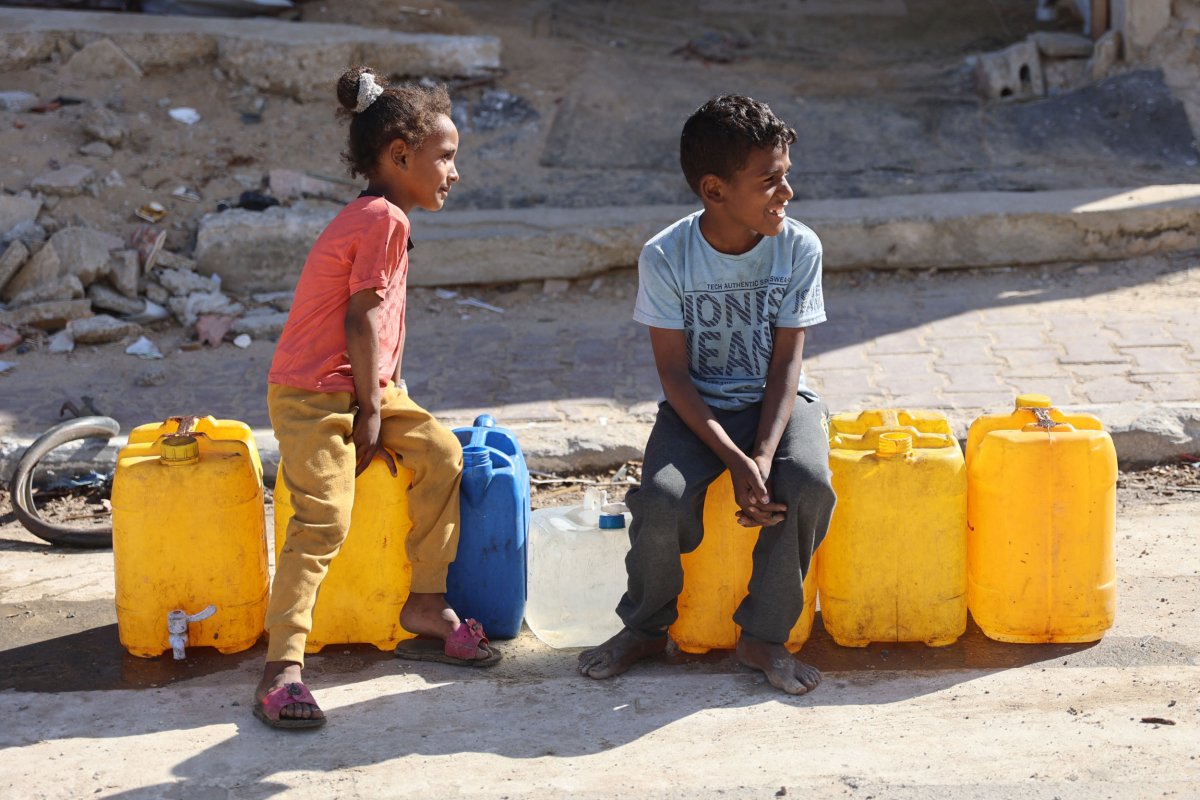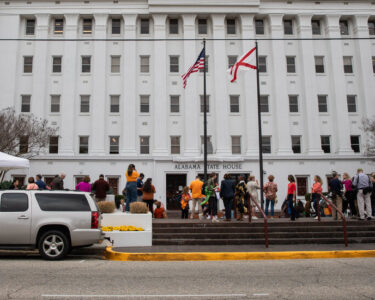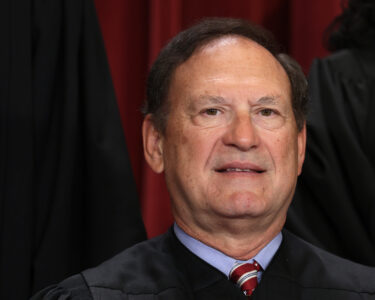For me, as a Palestinian human rights activist, one of the most disappointing phenomena of the ongoing war between Israel and the terrorist group Hamas is the enduring and indeed increasing support for Hamas among sectors of the Palestinian general public. Many of my friends are reflexively incredulous that some Palestinians could continue to support a violent faction that slaughtered 1,200 Israelis on a single day—Oct. 7—raping and genitally mutilating many of them, and taking more than 240 innocents hostage. The embedded support for Hamas is a complex phenomenon rooted in history, propaganda, and the influence of external forces seeking to exploit the Palestinian cause for their own agendas.
Not coincidentally, support for Hamas is much higher in the West Bank—misgoverned by Hamas’s archrivals, the secular nationalist Fatah, which rules the Palestinian Authority (PA)—than in Gaza, whose population is being actively brutalized by Hamas. Popular support for violence persists despite the devastating impact that following radical leaders and ideologies has historically had on the Palestinian people, as poignantly summed up by Israel’s Abba Eban when he quipped that Arabs, including the Palestinians, “never miss an opportunity to miss an opportunity.”
The Palestinian political landscape has been significantly shaped by various outside radical forces over the decades. Anti-Western “rejectionist” figures like Egypt’s Gamal Abdel Nasser, Iraq’s Saddam Hussein, and the ayatollahs of Iran have historically positioned themselves as champions of the Palestinian cause but have done so primarily to advance their own power and influence in the Middle East, regardless of the damage done to Palestinian lives.

OMAR AL-QATTAA/AFP via Getty Images
This posturing has often come at a great cost to Palestinians, involving them in broader geopolitical conflicts that divert attention from the pursuit of practical and peaceful solutions to their plight. During the Cold War, the Soviet Union also played a role in the Middle East by backing radical elements as a way to extend its influence at the expense of Western interests. These interventions have helped to sustain a pattern of violence and retaliation, deepening divisions and pushing peace further out of reach.
Just as worrying is the role of propaganda and misinformation, which are not unique to the Palestinian context but are pernicious there due to the high stakes involved. Misinformation campaigns, often fueled by Hamas and its allies, have painted violent terrorism as the only path to dignity and rights for Palestinians. Palestinian schoolbooks and public media are rife with antisemitic and jihadi content. Hamas’s allies in the West have matched Hamas’s genocidal rhetoric with an equally exterminationist call for the de-normalization and destruction of Israel.
Before one decries Palestinians for falling for such tactics, recall that the exploitation of darker emotions and interpersonal conflict for political gain is paralleled in many Western democracies, where misinformation and polarization have increasingly threatened societal cohesion.
The effects of embracing radicalism are visible in the lives of ordinary Palestinians. Economic stagnation and political instability are just some of the repercussions. Moreover, the leadership’s tactics, such as the glorification and financial reward of acts of violence, commonly referred to as “pay-for-slay” payments, only serve to entrench a culture of violence. Such practices not only harm the prospects for peace but also degrade the moral and social fabric of Palestinian society.
It’s crucial to consider successful examples of de-radicalization from other regional contexts. After Sept. 11, 2001, Saudi Arabia implemented a comprehensive de-radicalization program aimed at rehabilitating extremists through education, psychological intervention, and social reintegration. This program has had successes and offers valuable lessons that could be adapted to the Palestinian context.
What is needed now is a concerted effort from the world community to demand and support a transformation within Palestinian leadership towards moderation and practicality, including:
Ceasing Incitement: A fundamental overhaul of the educational and media systems within the Palestinian Territories is essential to stop the demonization of Jews and the glorification of violence. Accomplishing this involves revising textbooks, regulating media content, and promoting narratives based on peace and coexistence.
Ending Financial Incentives for Violence: The global community must pressure the PA to cease all forms of financial incentives that reward violent acts. These funds could be instead allocated towards building infrastructure, education, and healthcare services.
Promoting Political and Economic Stability: Mahmoud Abbas’s 20-year kleptocracy in the West Bank is only marginally more attractive than Hamas’s Taliban on the Mediterranean. Developing a robust, transparent, and accountable political system is vital. It should be coupled with economic initiatives that can lead to job creation and improve living standards, reducing the allure of radical groups that exploit poverty and despair.
The path to peace is undoubtedly fraught with challenges, but the continued support for entities like Hamas based on historical patterns of external manipulation and internal propaganda can only lead to catastrophe for the future of the Palestinian people. By learning from past mistakes and adopting successful de-radicalization strategies, the world can prompt a shift towards a more peaceful and prosperous Palestinian society. It’s time for the global community to step forward to encourage the development of a Palestinian leadership that can indeed act in the best interests of its people and the world in creating a stable and peaceful Middle East.
Bassem Eid is a Palestinian human rights activist. He lives in the West Bank.
The views expressed in this article are the writer’s own.
Uncommon Knowledge
Newsweek is committed to challenging conventional wisdom and finding connections in the search for common ground.
Newsweek is committed to challenging conventional wisdom and finding connections in the search for common ground.
👇Follow more 👇
👉 bdphone.com
👉 ultraactivation.com
👉 trainingreferral.com
👉 shaplafood.com
👉 bangladeshi.help
👉 www.forexdhaka.com
👉 uncommunication.com
👉 ultra-sim.com
👉 forexdhaka.com
👉 ultrafxfund.com
👉 ultractivation.com
👉 bdphoneonline.com




